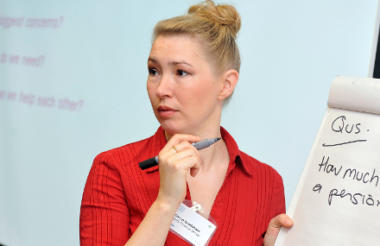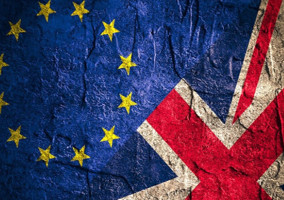The Charity Finance Group has said that a ‘clean’ Brexit, which sees the UK leave the single market and the customs union, poses less risk for charities than other options because it gives the government the flexibility to reform tax rules that have been holding back the sector.
In A Brexit that works for everyone, which was published last week, CFG assesses the risks and benefits of a clean Brexit versus a model where the UK remains in the single market and customs union. It concludes that clean Brexit would be best for charities as it means the government could reform VAT.
CFG warns that remaining in the single market and the customs union risks the “worst of both worlds”, as the UK would have to follow the EU's tax, state aid and procurement policies without being able to influence them.
The report says that remaining in the single market and customs union might be good for big businesses, but “could hold back the ability of charities to deliver public goods and support the most disadvantaged communities”.
NCVO has criticised the report, describing its framing as “unhelpful”.
Six-point plan
CFG argues that reducing the tax burden on charities could create 50,000 extra jobs in the sector, but only if the government takes action.
It has developed a six-point plan for government to explain what a good Brexit for charities would involve:
1. A deal where the UK has complete freedom to change VAT rules, for example, creating new zero-rates, options to tax and a comprehensive rebate mechanism.
2. The UK government to commit at a minimum to fund to the same level services that are currently funded by the EU, with improvements in delivery of funding.
3. A deal where the UK is still able to flexibly pool resources to access EU funds in key areas such as international aid.
4. A deal which allows the reform of state aid so that it focuses on enforcing competition in real markets rather than tying up charities and social enterprises in red-tape [and] working in broken or non-functioning markets.
5. Greater flexibility on public procurement so that more grants and contracts are awarded on the full social, economic and environmental value that could be created, not just on cost.
6. An immigration system which is flexible and enables charities to continue to hire the workers that they need in order to carry out their objectives effectively.
Speaking about the report, Caron Bradshaw, chief executive of CFG, said: “It is no secret that most charities wanted the UK to remain in the EU, but the debate has moved on and charities are beginning to think about the benefits of Brexit.
“If the government makes the right decisions, Brexit could provide a huge opportunity for the charitable sector to flourish. Sadly, according to our research with the public, only 2 per cent believe that disadvantaged people and communities are a top priority in Brexit for the government.
“The voluntary sector has been hindered in the past by VAT rules and state aid, and now is the chance to overcome this and change the regulatory environment in which it works.
“Charities can thrive post-Brexit, but it is down to the government working with charities to deliver this.”
NCVO: ‘Framing is unhelpful’
Brendan Costelloe, the senior external relations officer who leads NCVO's Brexit work, criticised the report for taking a “binary” view of the options on offer for the UK.
“The most likely scenario is that there will be a bespoke trade deal with the EU", he said, adding that “while there may be some benefit to changing the VAT rules, we don’t think that should trump getting a suitable trade deal”.
He added that “the framing is a bit unhelpful”. For example, he said, the focus on “cutting red tape” contrasts with many organisations' concern that regulation should be put in place to protect the vulnerable in society.
‘Reach out to new audiences’
CFG’s report was picked up by pro-Brexit news outlets over the weekend, and Andrew O’Brien, head of policy and engagement, has written a blog to answer some questions that have subsequently arisen.
He said that CFG used the term 'clean' Brexit rather than ‘hard’ or ‘soft’ because “we thought that ‘clean Brexit’ was most likely to get a hearing in those Brexit-supporting audiences where charities have not yet been able to make themselves heard”.
O’Brien also said that the aim of the report is to encourage the government to act on the issues raised should a clean Brexit take place.
Related articles












